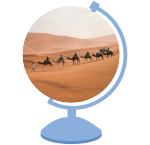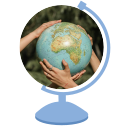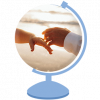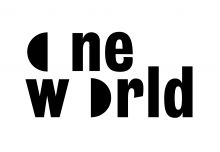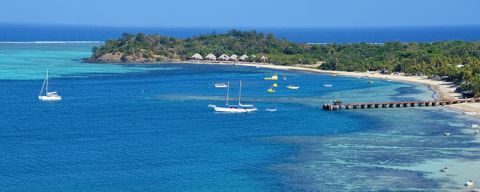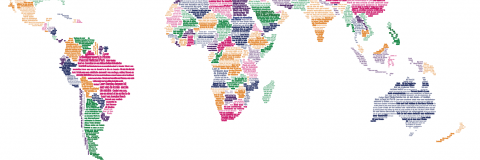The Netherlands, although a small country, has a lot to offer. Amsterdam, the multicultural capital city, is known for its unique architecture and the canals throughout the city centre. The main mode of transportation amongst the Dutch is a bicycle, therefore you can find bicycle lanes everywhere. For historical reasons, the government and parliament are in The Hague. The Netherlands is a constitutional monarchy with a parliamentary system, and its government consists of the King and ministers. King Willem Alexander van Oranje (from Orange) is the head of state. His birthday, on the 27th of April, is extensively celebrated with a national holiday and festivals at which everybody dresses in orange.
The Netherlands (some call it Holland) in a nutshell
Constitution and the Capital
-
The Netherlands are a constitutional monarchy with a parliamentary system, and its government consists of the King and ministers. For historical reasons the government and parliament are in The Hague, although Amsterdam is in fact the capital. The Netherlands has a coalition government. King Willem Alexander is the head of state.
Population
-
Holland is one of the most densely populated countries in the world. It has a population of around seventeen million and an average of 481 inhabitants per square kilometer. Nearly half of the 17 million residents live in what is called the Randstad, a huge agglomeration in the west of the country that includes Amsterdam, The Hague, Rotterdam and Utrecht, where during the rush hour, the motorways slows to a crawl.
Language
-
Dutch is the national language of Holland. However, English is spoken by almost everyone. In addition, many Dutch people speak German and French. Dutch is the mother tongue of well over 21 million Dutch people and Flemish people (Dutch- speaking nationals of Belgium).
Surface
-
Holland is quite small; the surface area is 41,528 square kilometers. The greatest distance from north to south is 300 kilometers, and from west to east 200 kilometers.
Time Zones
- The Netherlands is located in the Central European Time zone (UTC +1). This implies that when the Chinese get up in the morning at 06:30 and ready to go to work, it is almost time for the Dutch to go to sleep/already asleep because it is 00:30.
Climate
- The Netherlands has a moderate maritime climate with cool summers and mild winters. It is a common assumption that it always rains in the Netherlands, but this is more so a feeling than reality.
- The Dutch climate is very unpredictable and therefore the Dutch are known for always complaining about the weather. A standard typical dutch opening sentence is: How is the weather?
Amsterdam
| JAN | FEB | MAR | APR | MAY | JUN | JUL | AUG | SEP | OCT | NOV | DEC | |
| Max temperature | 4 | 5 | 10 | 13 | 18 | 21 | 22 | 22 | 19 | 14 | 9 | 5 |
| Min temperature | -1 | -1 | 1 | 4 | 8 | 11 | 13 | 13 | 10 | 7 | 3 | 1 |
| Hours sun per day | 2 | 2 | 4 | 5 | 7 | 7 | 6 | 6 | 5 | 3 | 2 | 1 |
| Precipitation (mm) | 70 | 55 | 45 | 50 | 50 | 60 | 80 | 90 | 70 | 70 | 70 | 65 |
| Morning humidity | 90 | 90 | 86 | 79 | 75 | 75 | 79 | 82 | 86 | 90 | 92 | 91 |
| Afternoon humidity | 82 | 76 | 65 | 61 | 59 | 59 | 64 | 65 | 67 | 72 | 81 | 85 |
Transport
Trains
-
Dutch trains are efficient, fast and comfortable-most of the time.
-
Trains are frequent and serve domestic destinations at regular intervals, even five or six times an hour.
- At night, the airport Schiphol is connected by train with the major cities in the Randstad.
Bus, tram and metro
-
Buses and trams operate in most cities; Amsterdam and Rotterdam also have metro networks.
Bicycles
-
The Netherlands is famous for its many bicycles. Tourists often have to be careful while sightseeing, because cyclists are everywhere and not just on cycle lanes. There are about 18 million bikes in the Netherlands (so that is over one bicycle per Dutch citizen) and almost 35.000 kilometers of cycle lanes in a country of 200 by 300 kilometers.
- You can rent bicycles at the larger train station via railway company NS or at one of the many smaller rental companies throughout the cities. At many rental companies it is also possible to take a cycle tour with a tour guide.
Accommodation
Hostels
-
Hostels nowadays are the most popular option to spend the night, not only for young backpackers. The most famous Youth Hostel Association in Netherlands is StayOkay.
Homestay
-
If you really want to experience the Dutch lifestyle, you should consider to do Homestay at a Dutch host family. Often cheaper than a hotel and an ideal way to get in touch with locals.
Renting Rooms & Apartments
- A way to rent rooms is to find a trustworthy housing agency that will help you find a room.
Eating & Drinking
- The Netherlands is an open country where you can find almost all kinds of food from different countries in big cities. It is often said that the Dutch do not have a food culture. However, there are some special unique Dutch dishes you definitely can not miss. The Dutch kitchen is also very influenced by the Indonesian and Surinamese kitchen.
Specialities
- The orginal bitterballen are deep fried pork or beef ragout in a crispy batter. More and more modern options of bitterballen are avalaible like vegetarian - , cheese - and shrimp bitterballen.
- Poffertjes are a version of a tiny airy pan cake, served with butter and icing sugar.
- Stroopwafels are two thin wafer cookies with caramel sauce in between. You can find them in any supermarket and even fresh and warm at open air markets.
- Stamppot is the name of the dish made of mashed potatoes mixed with vegetables. Originated out of laziness. It is made in one pan and potatoes are simply being mashed (hence the name stamp or stoemp with means mashed). There are various kinds of stamppot. Boerenkoolstamppot is made with kale. Zuurkool stamppot is made with sauerkraut. Hutspot is made with onions and carrot. Andijviestamppot is made with endive.
For your information
- If you want a cup of coffee and a piece of very delicious Dutch apple pie, a "Coffee Shop" is not necessarily the place you want to be. Coffee Shop is a Dutch euphemism for a soft-drugs café. They can sell customers legally a certain amount of cannabis for personal use. Unless that is what you are looking for, you want to go to a café, a snackbar, or cafeteria instead.
Visa, documents & Safety
- Check out JoHo WorldSupporter for information about: Visa for the Netherlands
Safety
- The Netherlands is in general a safe country, and usually there is nothing to fear when walking in any part of any city.
- However, the bigger the city, the bigger the chance that there is a park or neighborhood you should avoid when the night falls, so wherever you are staying check the local situation (especially in Amsterdam & Rotterdam).
- If you come to Holland with your own car, please take care because a car with foreign registration is a popular target for smash-and-grab theft. Don’t leave important things in the car: remove registration and ID papers and the radio/stereo if possible.
- Another thing to remember if you are with your bike, especially in Amsterdam: make sure to lock your bike with several locks connected to a fixed object!
- Also keep in mind that foreigners are (like everywhere) favorite victims for whoever wants to commit a crime, so try to avoid looking like a tourist/foreigner. For example leave your luggage in the place where you are staying, only bring a little bag with you to hide your traveler’s identity; try only taking out your camera when you need it, otherwise it will be the best proof that you are a traveler.
Activities & Language
- Carnaval (february/march) is officially starting on a sunday and ends on a tuesday. The specific date it is celebrated is depending on easter, three days before ash wednesday. It is officially especially celebrated in the South of the Netherlands in cities like Tilburg, Den Bosch, Breda and Maastricht. The Dutch Carnival is an experience you should not miss. Costumes and face paint required!
- King's Day (27th of April): In 2013 King Willem-Alexander took over the reign from his mother, now Princess Beatrix. After decades of celebrating Queen's day, the first King's Day was celebrated in 2014 on the birthday of the king. This is a holiday for everyone in the Netherlands, on which children sell toys on flee markets and activities are organized all throughout the Netherlands, including street games, parties and festivals.
- Bevrijdingsdag/Liberation Day (5th of May): The day on which it is celebrated that the Dutch were liberated by the Allied and the end of the Second World War in the Netherlands was official. A day full of festivals throughout the Netherlands. Besides Kings Day one of the best days for street parties and festivals.
- Pride Amsterdam is celebrated the first saturday in august: A day in Amsterdam you cannot miss. Highlight of the two days is the Canal Pride on Saturday, in which many boats parade through the canals of Amsterdam, applauded to by thousands of people. Throughout the city there are activities and parties: a truly unforgettable day for celebrating gay rights.
- Prinsjesdag (every third Tuesday of September): the day on which the new finance plan is presented to the Dutch citizenry by the Dutch king. The official carriage ride through the Hague with the King and Queen is a true spectacle.
- Sint Maarten (11th of November): mostly a festivity for children, in which the life of Saint Marten is remembered. The children go door by door with self-made lanterns and sing songs in the hope to get candy and fruit.
- Sinterklaas (5th of December): perhaps the most Dutch holiday there is on which the birthday of Saint Nicholas (Sinterklaas) is celebrated. Sinterklaas and the Pieten already arrive per boat from Spain around half November. All leading up to the 5th of December when all the children, who have behaved well, receive presents from the birthday Saint.
Learning Dutch
- Dutch is not an easy language to learn - pronouncing those throaty, guttural sounds requires a lot of practice. As in any language, grammar rules do not always apply to every situation and sentence structures can deviate from your native language. If your native language is similar to Dutch, or you have studied a parallel language, you’ll be one step ahead of others. Despite English not being an official language in the Netherlands, it is spoken by most of the Dutch natives and it is thus possible to spend years in the Netherlands without speaking a single word of Dutch (depending on your activities of course). However, the Dutch appreciate it if you put some effort in learning the language and if you plan on staying longer in the Netherlands finding a job will be a lot easier if you speak at least some Dutch.
- Decide whether you would prefer to follow an established course or take private lessons. The Netherlands has a national network of language institutes that offer courses in Dutch for foreigners. Usually these courses are referred to as NT2, Nederlands als tweede taal – Dutch as a second language. If you are coming to Netherlands for studying purposes, ask your university if they offer any Dutch courses for foreign students.
Language Studying
- In addition to Dutch, you can also choose to spend a summer or a period of time abroad to improve your other language skills, for e.g. English, French, Spanish, German, Italian, Portuguese, Chinese, Russian etc.in Europe but also in Latin- America, South Africa or Australia. Book the course of your choice through JoHo straight away or inform about the wide range of language schools worldwide. No packed classes with only Dutch people, but instead students from different countries, a lot of free facilities and activities outside the classes, good supervision from motivated teachers and courses which are often held on very unique locations. Combine your course with voluntary work, do your internship during your language study or get your Padi diving certificate.
Study in The Netherlands
- Holland was the first non-English-speaking country with courses taught in English. Holland has a broad number of disciplines in which it has an international leading role. Higher education institutions in Holland offer about 1.000 international study programs and courses which are taught in English. These programs cover a broad range of fields. Curricula are intensive, at an advanced level, practically oriented, and designed to meet the expectations of students seeking specialized knowledge. The courses alternate theories with practice in real or simulated work situations. Most study programs and courses lead to a bachelor’s degree, a master’s degree, and a PhD degree, a diploma or certificate.
- Holland has two main types of regular higher education: university education and higher professional education. The universities focus on the independent practice of research-oriented work in an academic or professional setting. The universities of professional education are more practically oriented, preparing students directly for specific careers. A smaller branch of education is provided by International Education institutes, which offer programs designed especially for foreign students
Volunteer in The Netherlands
- If you are unable to find work, and are not dependent on an income from employment, voluntary work might help to fill the gap – possibly enabling you to learn new skills and improve your Dutch as well as experiencing the Dutch lifestyle. And you might even find that it leads directly to paid employment in the long run.
- There are a lot of organizations offering volunteer work in the Netherlands. Not all of them require knowledge of Dutch. There are tasks for 40 hours per week but also light work for only 2 hours per week. Some institutions may pay small salaries; others reimburse your travel expenses or supply you with meals (especially if you work in the kitchen) or they pay you just for the expenses you make.
Intern in The Netherlands
- It is relatively easier for Dutch speaking students to find good internships. The language is always going to be a mayor factor for English-speaking students trying to find an internship in the Netherlands. There are internships for those with no knowledge of Dutch at all, but you will certainly enhance your prospects if you make the effort to learn at least a little of the language. And the more Dutch you speak, the better your prospects will be.
Gerelateerde pagina's
Relaties en meer lezen
- 1 van 2
- volgende ›
Chapters
Teksten & Informatie
JoHo 'chapter 'pagina
Wat vind je op een JoHo 'chapter' pagina?
- JoHo chapters zijn tekstblokken en hoofdstukken rond een specifieke vraag of een deelonderwerp
Crossroad: volgen
- Via een beperkt aantal geselecteerde webpagina's kan je verder reizen op de JoHo website
Crossroad: kiezen
- Via alle aan het chapter verbonden webpagina's kan je verder lezen in een volgend hoofdstuk of tekstonderdeel.
Footprints: bewaren
- Je kunt deze pagina bewaren in je persoonlijke lijsten zoals: je eigen paginabundel, je to-do-list, je checklist of bijvoorbeeld je meeneem(pack)lijst. Je vindt jouw persoonlijke lijsten onderaan vrijwel elke webpagina of op je userpage
- Dit is een service voor JoHo donateurs en abonnees.
Aanmelden
- Hier kun je naar de pagina om je aan te sluiten bij JoHo, JoHo te steunen en zelf en volledig gebruik te kunnen maken van alle teksten en tools.
Aanmelding: checken
- Hier vind je wat jouw status is als JoHo donateur of abonnee
Prints: maken
- Dit is een service voor wie bij JoHo is aangesloten. Wil je een tekst overzichtelijk printen, gebruik dan deze knop.





